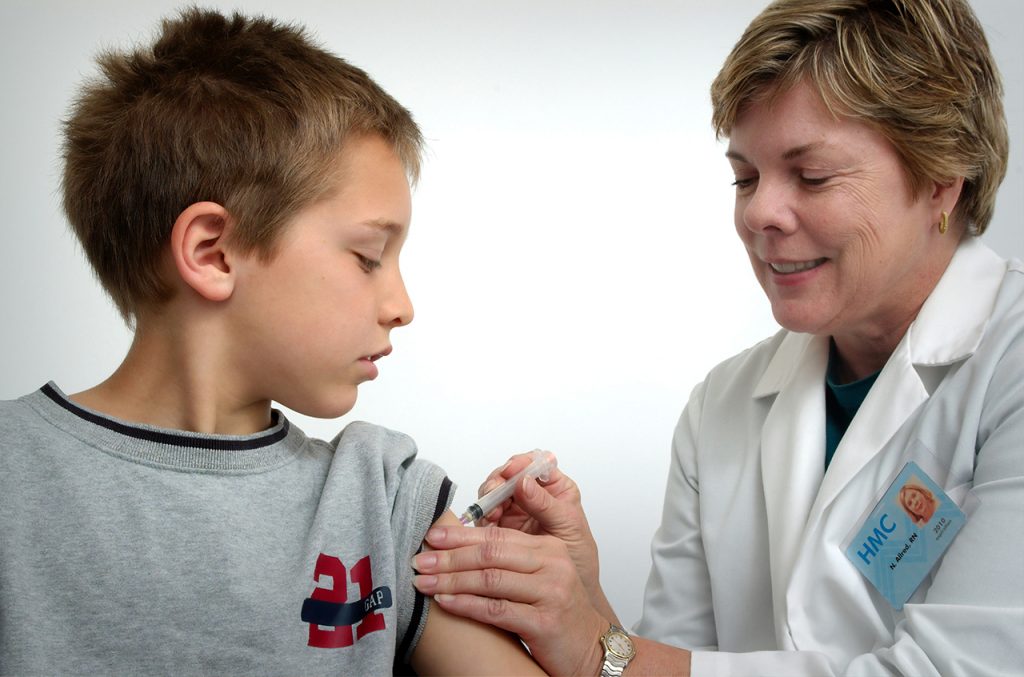State Is “Ready to Go” on COVID-19 Vaccines for Kids 5-11 Years Old, Says Michigan’s New Top Doctor
Chief Medical Executive Dr. Natasha Bagdasarian and U-M Epidemiologist Dr. Emily Martin talk about Michigan’s COVID-19 trajectory as we head into winter.

For almost two years, the COVID-19 pandemic has been the largest influence on our daily lives. With the three major COVID-19 vaccines, our second pandemic winter should look a little more hopeful than the last, with Michigan case rates just starting to decline.
“The vaccine is very important at the individual level … but also at the community level. This is how we care for each other.” –Michigan Chief Medical Executive Dr. Natasha Bagdasarian
However, as we begin to let our guard down, the highly transmissible delta variant continues to spread. Medical experts Dr. Natasha Bagdasarian and Dr. Emily Martin recommend staying vigilant against the virus this winter to protect friends and loved ones.
Listen: Two Michigan medical experts on how to stay safe going into our second pandemic winter.
Guests
Dr. Natasha Bagdasarian is the chief medical executive for the State of Michigan. She says recent COVID-19 case rates have been climbing slower than last year because of a larger vaccinated population. “This surge was vastly different from our previous surges … it was a very slow and steady incline as opposed to previous surges where numbers quickly spiked up.” Even though Michigan’s current vaccination rate is close to Gov. Whitmer’s 70% goal, Bagdasarian says this is just the beginning. “I think that number is something to be celebrated and celebrate how far we’ve come … But 70% isn’t our end goal … When we reach 70%, we’re not going to stop. The goal is to get as many people vaccinated as possible.”
An FDA advisory panel recently approved the Pfizer vaccine for use on children ages 5 to 11 years old. Bagdasarian says the state is already preparing to make the vaccine available for children in Michigan. “As a state, we’re ready to go … We already have providers who are prebooking [pediatric] vaccine doses.” As people gather for the holidays, Bagdasarian reminds individuals to get vaccinated to keep their loved ones safe. “The vaccine is very important at the individual level … but also at the community level. This is how we care for each other.”
“This vaccine was built upon technologies the field at large had been developing [for many years]… it was sort of poised and ready for this application.” –Dr. Emily Martin, University of Michigan
Dr. Emily Martin is an associate professor of epidemiology at the University of Michigan. She says the known research behind the COVID-19 vaccine should be reassuring for those who are still hesitant to get vaccinated. “As someone who’s worked in the vaccine field a long time, this vaccine was built upon technologies the field at large had been developing [for many years]… it was sort of poised and ready for this application.”
Martin says we already know a lot about any potential long-term side effects of the vaccine because of other similar vaccines. “Even the very rare side effects of the vaccine, we’ve seen the same side effects many, many, many times over for people who have had COVID,” she says.
Martin says Michigan’s case rates are beginning to decline. “I think we have a winter to make it through. Hopefully rates will come down from where we are now. As people move indoors, we’ll have a higher level of caution. I hope this is the last winter we’ll have to do that.” She says the best way to keep others safe is still to get vaccinated and continue wearing masks in public, “We still have this responsibility to each other to take care of people who are immunocompromised or more vulnerable.”
Trusted, accurate, up-to-date.
WDET strives to make our journalism accessible to everyone. As a public media institution, we maintain our journalistic integrity through independent support from readers like you. If you value WDET as your source of news, music and conversation, please make a gift today.
